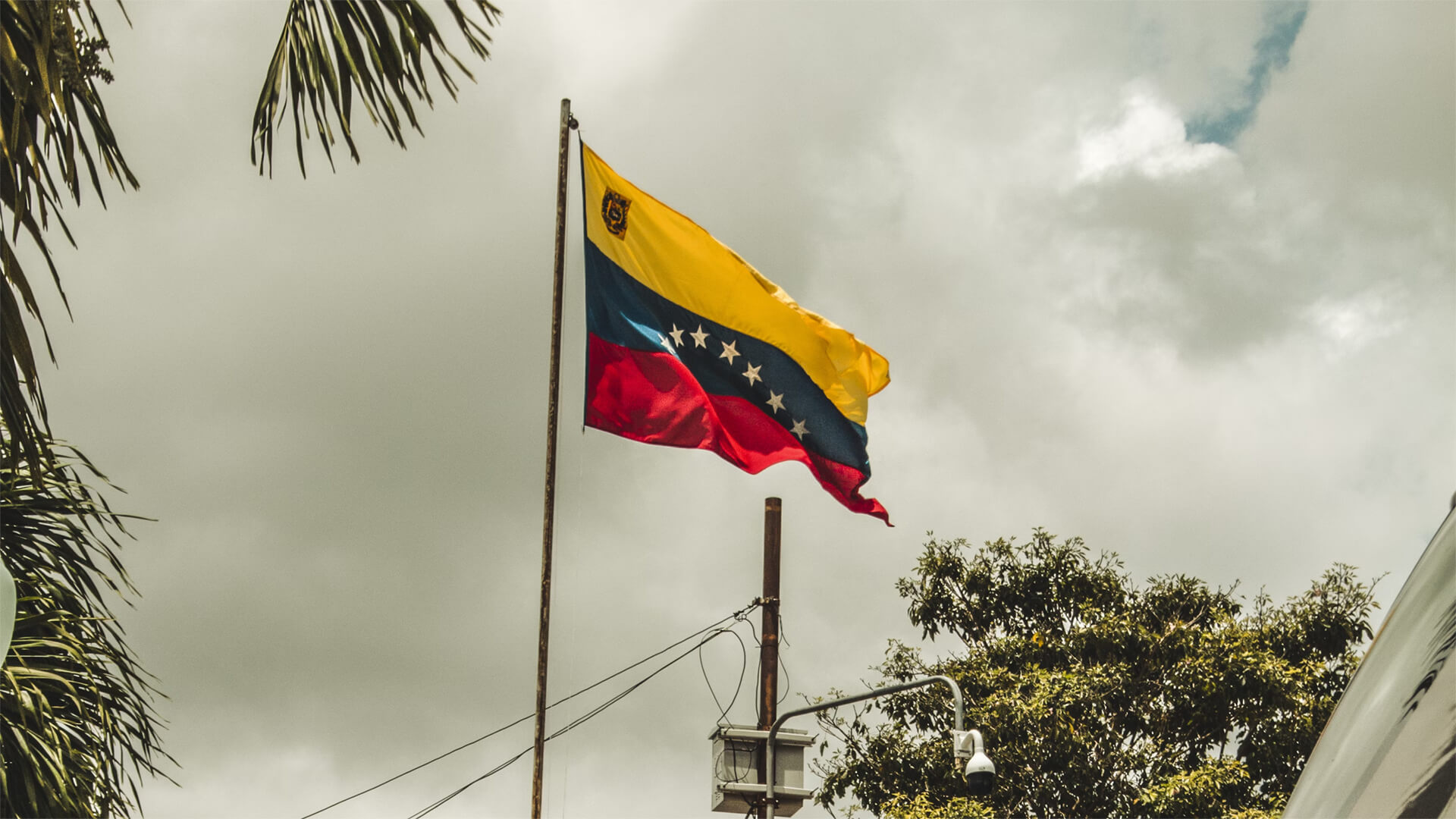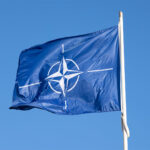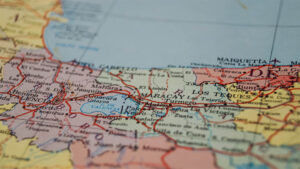With the increasing possibility of disruptions to the Middle East oil supply, I was asked an ~interesting~ question on how to solve it. Could foreign intervention in Venezuela open its oil supply as an alternative to Middle Eastern oil.
Before we look at Venezuela, we need to know who might be interested first. The US has its oil needs figured out, so it’s really only the Europeans that would consider this. There’s plenty of crude in Venezuela, but years of mismanagement have left infrastructure and fields in poor condition. Couple that with a host of security issues, political instability, and a heavily armed civilian population…and it’s definitely not a cakewalk.
Even if the Europeans were willing to make the massive investment to revamp the oil industry in Venezuela and put forth a substantial military presence to establish the order needed to make this possible, they would still need the sign off from the US…and that’s probably not going to happen without some major incentives.
Here at Zeihan on Geopolitics, our chosen charity partner is MedShare. They provide emergency medical services to communities in need, with a very heavy emphasis on locations facing acute crises. Medshare operates right in the thick of it, so we can be sure that every cent of our donation is not simply going directly to where help is needed most, but our donations serve as a force multiplier for a system already in existence.
For those who would like to donate directly to MedShare or to learn more about their efforts, you can click this link.
Transcript
Hey everybody, Peter Zeihan here coming to you from the Golden Horn above Denver and it’s probably my last snow free day of the season. Anyway, We are. Oh.
Oh, deer.
Today we’re taking a question from the Patreon crowd. Specifically with everything in the Middle East starting to look very Middle Eastern again, would it be worth considering some sort of operation in operation?
To remove the government of Nicolas Maduro of Venezuela so that the world has another source of crude available for when the Persian Gulf becomes a place you really don’t want to be? Might sound a little neo imperialist, but that’s a pretty good question. You got 20 million barrels a day of crude that comes out of the, the Persian Gulf states.
And any meaningful conflict that involves Iran or Saudi Arabia, clearly is going to take a substantial percentage of that off line. And even if the oil fields in the United Arab Emirates and Saudi Arabia take no damage, and even if those two countries stand, and even if the bypass pipelines that get around Hormuz or go to the Red sea, operate at full capacity, you’re still talking about roughly how 12, 12 to 13 million barrels per day that’s under severe threat.
So the idea of being able to get some more crude out of Venezuela is a solid idea from a supply point of view. In addition, if you look back at history, the original oil embargoes that OPEC did, were Arab. They were not they didn’t involve all oil producers. And back in the day, Venezuela was not a participant in them.
So we saw more production out of Venezuela, which didn’t simply, cushion the blow.
But I would argue that over the period of several weeks to months, it actually broke the back of the embargo. So having Venezuela in play is obviously great. That said, the country that would do something like that is 100% not the United States.
While the United States does prefer heavy crude, Venezuela has been such an a sneaky producer for so many years, more than a decade now that, with the exception of a few incidental cargoes, U.S. refiners just don’t even want to take delivery of the stuff because they can’t plan on it. You tool your refineries step by day, week by week, by month, by month, year by year, based on what you anticipate, the blend of crudes coming in going to be.
And so if you can’t rely on a particular supplier, it’s better for you simply not to use it at all. And ever since the early days of Hugo Chavez, maybe going back to 2007, there have been very, very few refineries in the United States who have chosen to use Venezuelan crude. I know that doesn’t match the rhetoric.
It’s always about, oh, we’re not going to ship to the Americans anymore. Well, the Americans weren’t buying anymore. So if Venezuela were somehow magically to come back into the mix, its specific grade, a very heavy, very sour crude would have a hard time finding a local buyer. That’s problem one. Problem two. The middle row government is well, it’s like Zimbabwe levels of incompetent, Zimbabwe being a country that was one of the world’s great breadbasket until the government of Mugabe and his successor just drove it into the ground and made it a food importer, under first Hugo Chavez.
No, Nicolas Maduro, we’ve basically seen the, cronies of the government literally rip up everything, even if it was nailed down, and sell it oftentimes for scrap. So the country now imports 80% of its food. It used to be a food exporter. And, its total oil output is kind of bouncing back and forth between 500,000 million barrels per day based on what happens with, Chevron, the American company, which is really the only one that’s still operating there.
Most of the reservoirs have suffered extreme damage. The infrastructure hasn’t been maintained. And don’t get me started on the refineries. Oh, there’s like chunks in their gasoline now. But just for the record, chunks of gasoline is a bad thing. So, if you could wave a magic wand and change the government and change the investment strategy and, make them not klepto those.
Oh, yeah. Important detail. The Venezuelan government is not socialist. It is not communist. It’s a kleptocracy. And of course, we should be scared of that anyway,
If everything was perfect, it would still take probably an investment of 40 to $50 billion upfront just to get back to where they were five years ago when they were exporting, like, a million barrels a day, maybe producing something close to a million and a half.
Keep in mind that the fields that Venezuela has are old, they’re technically challenging, and they produce a very sludgy type of crude. So you really to know what you’re doing. And today, there’s only a handful of companies that have any experience working with that. One of the Chevron, the other ones, Conoco. And then there are some companies that say in Canada that work with the oil sands, which is probably the closest analog, but it’s even not a very good one.
And as a rule, the Canadian oil sands operators don’t operate anywhere except for the oil sands. So simply building up the skill set that would be necessary to attempt this would be huge. Third, most of the oil is in one of two places in the western part of the country. You’ve got a region called Maracaibo, which is about as anti Maduro and anti-trade as you can get, but the government’s efforts to basically destroy their own state have had a big impact there.
And Maracaibo itself is lawless, complete with pirates operating offshore. And in Maracaibo a lot of the crude is produced from offshore wells, most of which are in the process of going down to zero. So you have a split politically in the country that you’d have to deal with. The second part of the crude comes from the southern belt, the Orinoco Belt, which is super heavy, far more technically challenging, and a lot of that is just vanished from the market completely.
So if you want to bring either of these in, you don’t simply need to change the government. You need to restore basic security to the country. And then you’re talking minimum, bare minimum. Something like 50,000 troops. Remember, one of the things that Hugo Chavez did is he paid people to be on his side. And he didn’t just pay them with food and with fuel and with cash.
He paid them with AK 47. So arguably, of the countries in the world that are not actual war zones, the densest footprint of assault rifles in the population is in Venezuela now. So anyone who’s going to come in for any reason, even if the locals in general are welcoming the stability and they be able to get food, they’re going to be dealing with the significant population that is armed to the teeth and not with little pop guns.
Okay, you put all that together and the US is like, no, sir. The United States is now not just a net exporter of crude oil, but by the end of this calendar year, probably is going to be exporting 5 million barrels of refined product. That’s a greater volume of refined product exports than all but three countries in human history have ever produced as raw, crude.
So the idea that the United States is going to launch a war for oil is just silly. It’s going to happen. It’s going to be because countries in Europe realize that the Russians aren’t coming back to the table, not in the way that matters in the Middle East is as unstable as ever. Ergo, this conversation that means that we are left with the Europeans basically thinking, well, where else can we go?
And one of the very few options that is not West Africa or North Africa is going to be Venezuela. So they’re going to have a choice. Do they go into Libya, which is basically a stateless zone now on its own. Can’t even call it a civil war. Civil war requires a state. You can go into Nigeria where with over 100 million people, the chances of imposing a security environment on Nigeria that the Nigerians don’t want is silly.
So we’d have to be even done with partnership with them. So even with a lot of cash, you’re going to be dealing with a very corrupt system and slow growth of output, or you’re talking about a military occupation and enforceable reconstruction of Venezuela. Leaving aside the little issue that the Europeans are a little bit out of practice at that, they would have to get American permission as well.
Monroe Doctrine and all that. And for the United States to give the Italians, the Brits and the French and the Germans approval to invade, basically a country in the Western Hemisphere, let’s just say that whatever was being offered in exchange would have to be really nice. And I’m not sure there’s anything in Europe that we want that badly at the moment.
So interesting idea. The crude is there, but the country that would have the capacity to do something but the United States really doesn’t care. And the countries that do really care would have to build up a whole fresh set of tools and then bribe Washington in order to make it happen. So it’s an interesting exercise, but nothing that I think is going to go down this decade, next decade though, everything’s game.








